Search
Did you mean: Lysander?
Search Results
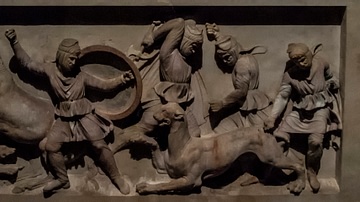
Image
Alexander Sarcophagus
This is a side panel of the Alexander Sarcophagus, a stone sarcophagus adorned with bas-relief carvings of Alexander the Great from the 4th century BCE. Discovered in Sidon, Lebanon and residing in the Istanbul Archaeology Museum today.
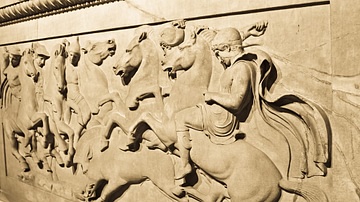
Image
Alexander Sarcophagus, Sidon
Detail from Alexander sarcophagus, showing a scene of wild boar hunting. Despite the name, the sarcophagus was not made for Alexander the Great. Sidon, 4th century BC.
Istanbul Archaeology Museums.
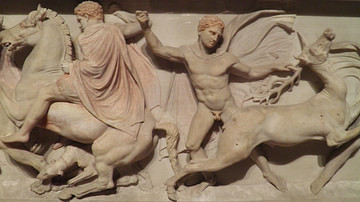
Definition
Argead Dynasty
The Argead dynasty, the ancient Macedonian house of Dorian Greek origin, lasted from the 7th century to 310 BCE. The mythological founder of the dynasty was King Caranus but it was under Philip II of Macedon (382-226 BCE) that the Macedonian...
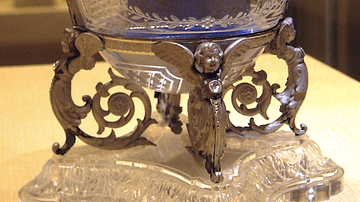
Image
Alexander III Equestrian Egg by Fabergé
The 1910 Alexander III Equestrian Egg by Peter Carl Fabergé (1846-1920). The egg was given by Tsar Nicholas II (r. 1894-1917) to his mother the Dowager Empress Marie Feodorovna. It commemorates the unveiling of a statue of Tsar Alexander...
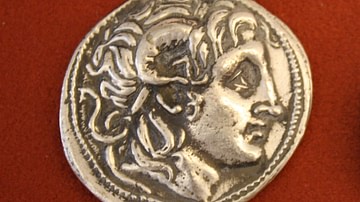
Image
Alexander as Ammon-Zeus
Silver tetradrachm from Thrace, reign of Lysimachus, 323-281 BCE. Head of Alexander as Ammon-Zeus. (Alpha Bank Numismatics Museum, Corfu)
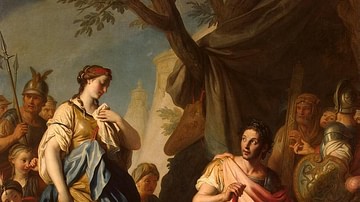
Image
Alexander The Great and Roxane
Alexander The Great and Roxane (1756) by Pietro Antonio Rotari (1707–1762). Hermitage Museum, Saint Petersburg, Russia.
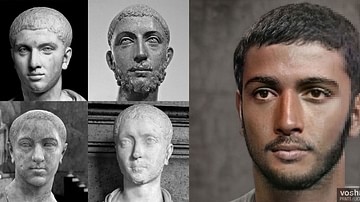
Image
Alexander Severus (Artistic Facial Reconstruction)
A photorealistic artistic reconstruction of what the Roman emperor Alexander Severus (r. 222-235 CE) may have looked like. Based on contemporary and near contemporary descriptions, as well as archaeological evidence. Pictured alongside...
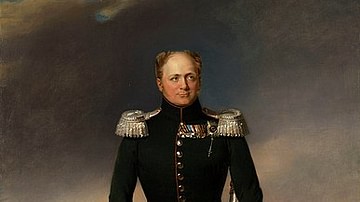
Image
Alexander I, Emperor of Russia
Emperor Alexander I of Russia (r. 1801-1825), oil on canvas portrait by George Dawe, c. 1818-1825.
British Royal Collection.
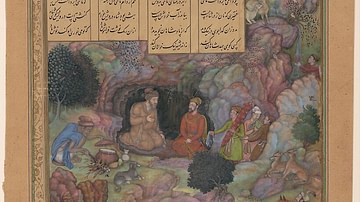
Image
Alexander Visits the Sage Plato in his Mountain Cave
An illustration from the Khamsa (Quintet) by the Indian poet Amir Khusrau (1253–1325). The scene shows (on the right) Alexander the Great, who in Khusrau’s work travels extensively, including in search of spritiual enlightenment. The Greek...
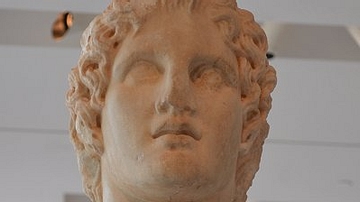
Image
Alexander the Great (Head)
The sculpture is considered to be Alexander at 18, made when he visited Athens after the battle of Chaeronea in 358 CE.
Taken at the Acropolis Museum in Athens